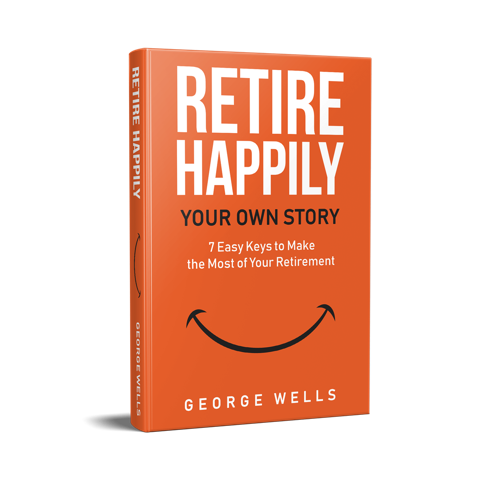Should I Consider Life insurance in My Estate Plan?
If you haven’t had any major medical events happen in the past five to ten years, you’re likely a candidate for life insurance. It has changed a lot over the years. Today in estate planning, life insurance is used for managing income taxes, transferring assets and most importantly to you, giving you benefits while you’re alive so you can do the things you want to do, have assistance in your home and receive money tax-free to use.
I am excited about the changes in life insurance! So many financial professionals don’t understand it and don’t know how to use it or to explain to their clients how to apply it. We want you to be able to ask the right questions and make the right decisions. Call us with your questions. We specialize in this subject, and we can tell you quickly if you’re a candidate for life insurance and if it’s a good idea for you.
What Benefits Come with Life Insurance in Estate Planning?
In estate planning, life insurance is one of the most powerful tools in managing your income taxes and getting benefits while you’re alive. If you encounter any type of challenges, physically or neurologically, you can get benefits through very specific types of Life Insurance products. One is called corporate design life insurance. Again, when you reach the age of 70½, you will be required to take out required minimum distributions from your IRA account(s). But if you don’t need the money, you must pay the taxes on it. So you need to know where to put that money if you don’t need it so you can get the highest tax advantage for yourself, your spouse and your heirs.
Two Activities of In-Home Daily Living
You can use a certain type of life insurance for your benefit while you are still living if you ever need in-home care because you are unable to do two of the six activities of daily living (bathing, dressing, taking medications, meal preparation, toileting and transferring). If you’re not able to do two activities of daily living because of a neurological or physical challenge, you can get tax-free benefits.
What Exactly is It Advisors Do?
What exactly is it that financial advisors do? The real answer to the question is complicated without interviewing the financial professional myself. So I would say it depends. An advisor may help people with estate planning and income taxes. In my interview, I would ask how often they are helping people with these services. I would like to know what their success rate is and how effective are the different tools they use. I would ask about the other professionals they might refer you to. The intention here is to help you understand what is reasonable to expect from a financial professional. I believe it is fair to expect everything. You can assume your advisor should be the quarterback in the organization. I believe this is what you can expect if they do not have the answers to your questions. They should be able to direct you or at least be your advocate for what you need. If they do not know the answer, they should tell you, “I’m not sure about that.”
You know what? I’m not sure that’s something I don’t know.
Personally, although my licensing covers medicare, medicare supplements, and health insurance, I’m just not interested in it. I don’t feel like I understand these subjects well enough to speak on it and give advice. However, there are two or three professionals that I would refer to others. I utilize them myself, I am comfortable with them, and I have had a good track record with them. Because I have a history with them, I’m comfortable referring other people to these professionals. You may ask me about those subjects. George, what do you think? My answer would be, “I don’t know.” You may talk to the person that I refer you to and think; I don’t know if I like them. I don’t know if they know as much as I know. That’s alright. Don’t inappropriately expect a financial professional to be an expert in everything. Some retirement planners are just stars. It feels as if they know a little bit about everything, and they are a “Jack of all trades.” They know enough to be able to share with you. Yet, they are able to say; I don’t know enough about that, let me refer you to someone who does. Hopefully, that is the case for you.
Don’t inappropriately expect a financial professional to be an expert in everything. Some retirement planners are just stars. It feels as if they know a little bit about everything, and they are a “Jack of all trades.” They know enough to be able to share with you. Yet, they can say; I don’t know enough about that, let me refer you to someone who does. Hopefully, that is the case for you.
I’m going to compare the financial person to the medical profession. You could be seeing a doctor, a nurse, a lab technician, and all are medical professionals. In the case of a financial professional, you can have a whole range of skill set that falls under the title of a financial advisor. So let’s break this down.

Tax-Free Advantages in Life Insurance
Another attribute of life insurance is avoiding or managing income taxes when you’re passing your stuff on to your spouse or to the next generation. Because life insurance is tax-free, anything that goes through that mechanism will be completely tax-free. So if you have a large estate or a farm or a business that would be difficult to liquidate, you can use life insurance to pass those assets to the next generation. This includes any type of discretionary assets. Life insurance is something you should definitely consider.
How Does Life Insurance Affect Estate Planning?
Life insurance is important in estate planning, and you can use it to leverage your estate so you can leave more money to your heirs in a more tax-efficient and protected way. If you are coordinating your life insurance with your estate plan, there will be no ongoing fees; your payment will be part of the one-time estate-planning fee.
People ask, “Are there ways to use life insurance in a way that enables me to control how it’s distributed after I pass away?” Yes. One way is to make your living trust the beneficiary of the life insurance and have the trust go to your children or grandchildren over time. You can specify that the money is to be used for their education. You can even build in incentives to pay them funds if they go to college and graduate about when they should.
There are a lot of ways life insurance can be used to help your family after you’re gone. A lot of our clients who are in their fifties, sixties or seventies have a pension, and their adult children will not have pensions, even though they, too, have worked hard and gone to college. Few companies still offer pensions.
We also have to be concerned about what’s going to happen with Social Security. This might not be a concern for you, but it might be a concern for your middle-aged child or a child who will be middle-aged or elderly 10, 20, 30 or 40 years from now. What kind of retirement income will they have? You can leave life insurance and a trust for your children to provide them a retirement income in case they don’t have a pension or won’t have Social Security benefits that are as good as yours. We don’t know what the future will look like because there are a lot of changes in society that are impacting people’s employment and the amount they can earn. We see automation increasing and taking away jobs. Technology advances, globalization, and other trends will continue to change the way we earn income. People who have assets and who have saved money can use life insurance as part of their estate plan to create retirement income for their children.
Planning in Advance for Long-Term-Care Expenses
There are two general approaches to planning in advance for potential long-term-care expenses:
- You can purchase traditional long-term-care insurance. This product is not very popular because it is expensive, and in general, people don’t want to purchase a policy to pay for a place they never want to go (a nursing home or assisted-living facility). Traditional long-term-care insurance is not being used much, currently and traditionally.
- You can try a “hybrid long-term-care policy” or “asset-based long-term-care policy.” This newer alternative is a lot better, in our opinion. One advantage to these policies is that they are a tax-free way to structure part of your assets so you can pay for care at home instead of having to move to a facility. But if you do have to go to an assisted-living facility or nursing home, having this type of policy in place can provide substantial long-term-care benefits to help pay for it. You might never have to deplete your estate or worry about trying to qualify for Medicaid. Another good thing about these newer hybrids or asset-based policies is that if you never use them — if you never need long-term care — your heirs will get a death benefit, so you’re not wasting the money like with a traditional policy.
Unfortunately, not many advisors are knowledgeable about these policies. A lot of financial advisors are just concerned about structuring their clients’ assets in the stock market. They just assume you’re going to be fine forever and then you’ll pass away at some point. They’re not thinking about the possibility that their clients might need long-term care for a long period of time. We ask all our clients who are planning ahead to look into life insurance.

Download the Retire Happily Estate Planning Book
‘The Ultimate Guide to Estate Planning‘.
This free educational ebook explains estate planning as simple and complete a possible.





